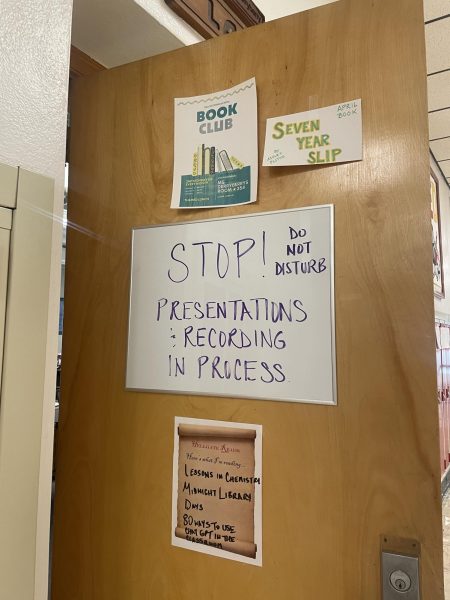What to Know About the Impeachment Inquiry
Lately the news has been filled with updates on the current impeachment inquiry. If you’ve gotten lost in the constant headlines, here is a quick summary with some basic things to know about what’s going on.
Why is there an impeachment inquiry?
The inquiry was initiated after an anonymous intelligence official voiced concerns about a phone call that occured in July, between President Trump and President Volodymyr Zelensky of Ukraine. Trump allegedly withheld $250 million of military aid prior to the call, which had been ordered to help Ukraine combat Russian aggression. He then suggested that Zelensky should investigate Joe Biden and his son Hunter. Trump has been accused of encouraging a foreign country to interfere in domestic elections, and abusing his power in order to pressure a foreign leader for favors.
Why is Ukraine involved?
Ukraine has been at war with Russia since 2014, when the Crimean Peninsula was annexed to Russia in a controversial referendum, and violence broke out between the Ukranian military and separatist forces (backed by Russia). The war has reached a stalemate, but regular fighting still occurs, and Ukraine’s military is heavily reliant on U.S. aid.
The Obama administration’s policy supported Ukraine, but pressured them to pass reforms ending corruption. As vice president, Biden had a significant role in pressuring Ukraine to fire prosecutor-general Viktor Shokin, who was a large part of the corruption. After Shokin was fired, he complained that it had been because Joe wanted to protect the position his son held on the board of Burisma, a Ukranian oil and natural gas company that Shokin claimed he had been investigating. At the time, most members of Congress supported Biden’s decision and there was not much controversy.
What does the Constitution say about impeachment?
Article II, Section 4 of the Constitution states that the President “shall be removed from office on impeachment for, and conviction of, treason, bribery, or other high crimes and misdemeanors.” What constitutes a ‘high crime’ or a ‘misdemeanor’ is not defined by the Constitution, and is left for the House to interpret. Impeachment does not require evidence of a crime, it only requires people to feel that the President has violated his oath of office.
How does the impeachment process work?
First, the House of Representatives must vote to impeach. Members can introduce a resolution proposing impeachment, or the House can introduce a resolution that begins proceedings by authorizing an inquiry, which is usually conducted by the House Judiciary Committee. Only a majority of votes are needed for this to begin.
After the inquiry is completed, the House votes on whether or not to officially charge the President. If they do, the case moves to the Senate, which acts like a court and has the ultimate say in whether or not to remove the President from office. A two-thirds majority is required for it to happen.
What is happening now and what happens next?
The House passed a resolution to formally begin an impeachment inquiry on Oct. 31. Since then, 12 witnesses have testified before the House Intelligence Committee. Now that public hearings have finished, the Committee will write a report of its findings and send it to the House Judiciary Committee, which will draft articles of impeachment.
It’s unclear whether impeachment will pass the House, as not all Democrats have said they support it, but there is a high possibility that it will. There is a much slimmer chance that it will go through the Republican-controlled Senate. No Republican members of Congress have said that they are in favor of impeachment.
What is the overall American response?
Americans remain divided. A poll from NPR and PBS NewsHour found that 45% of Americans are in support of removing Trump from office, while 44% are not. Yet 70% of Americans have agreed that it is “unacceptable for a president to ask a foreign leader to investigate a political opponent.” Americans are more split on whether they support impeachment than whether or not they believe Trump’s actions were wrong.

Hello! I'm a Senior at Hellgate and this is my second year writing for the Lance. In addition to writing, I enjoy mountain biking, playing cello, and competing...









